Saints Cosmas and Damian were twins born to Christian parents in Arabia, in the third century. They lived in the region around the border between modern day Turkey and Syria. …[The brothers] were physicians who were renowned for their skill as well as their refusal to charge for their services. Before beside manner was a “thing”, they had a loving and respectful way, and for this reason, they were called by the Church “unmercenary physicians” (Anargyroi in Greek).
Their charity and Christian witness won many converts to the faith and earned them a place of prominence in the Christian communities of Asia Minor. Therefore, when the Diocletian persecutions began in the latter half of the third century they were of some of the first to be sought out for execution.
In 287, they were captured and ordered to deny their faith in Christ. They refused and underwent a series of tortures, including Crucifixion, from which, miraculously, they remained unscathed. The torturers, weary of what they realized was the impossible task of forcing apostasy from their mouths, finally beheaded them both. (DA, edited)
Saints Cosmas and Damian, help us to live our faith and be people of virtue, pray for us.
Saints Cosmas and Damian, pray for our medical professionals.
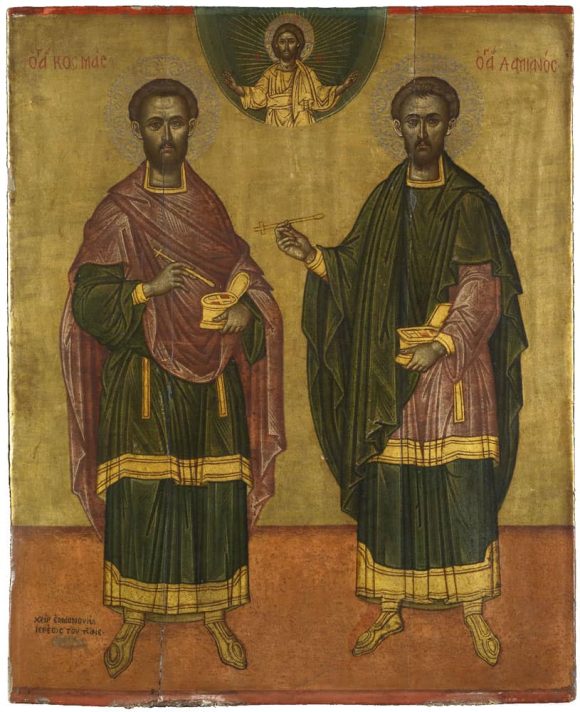
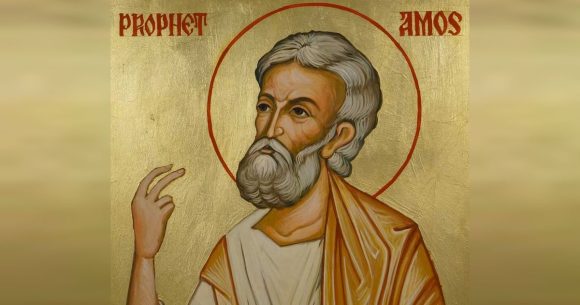
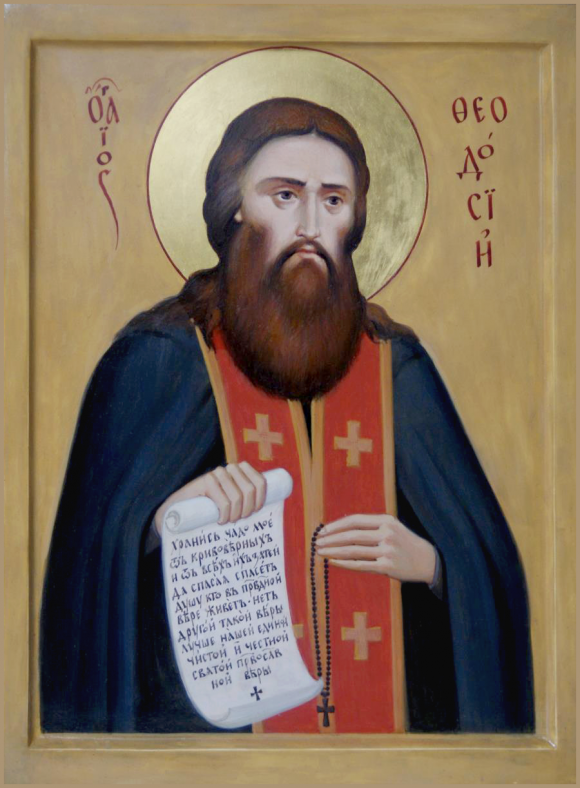
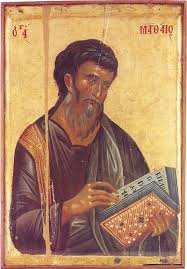 At the beginning of the Fast before Christmas, we celebrate the feast of St. Matthew, who wrote one of the Gospels of the birth of our Lord. (St. Luke is the other.) St. Matthew’s purpose was to show how the prophecies of the Covenant were fulfilled in Jesus. Therefore, he is the son of Abraham and the Son of David. He fulfills the prophecy of Isaiah that a virgin would give birth, the prophecy of Micah that he would be born in Bethlehem, the prophecy of Jeremiah that the innocents would die, and that he would be called a Nazorean. Matthew tells us of the visit of the Magi, the massacre of the innocents, and the flight into Egypt. It is also Matthew who presents to us the model figure of St. Joseph. Just as the Joseph of the Old Testament saved his people in Egypt, so the Joseph of the New Testament saves the hope of the people, Jesus, by taking him to Egypt. We have no better model of human fatherhood. Joseph is a righteous man (Matthew 1:19), who is open to God’s revelation through his messenger angel that the child of Mary is of God, a faith that goes beyond human knowledge. It is Joseph who protects the child, his foster son, so that Jesus, the Savior, could someday fulfill the plan of the heavenly Father. It is Joseph who re-orders his whole life for the sake of his beloved child. Joseph, then, is a model of divine fatherhood, “from whom every fatherhood in heaven and on earth is named. (Ephesians 3:15)”
At the beginning of the Fast before Christmas, we celebrate the feast of St. Matthew, who wrote one of the Gospels of the birth of our Lord. (St. Luke is the other.) St. Matthew’s purpose was to show how the prophecies of the Covenant were fulfilled in Jesus. Therefore, he is the son of Abraham and the Son of David. He fulfills the prophecy of Isaiah that a virgin would give birth, the prophecy of Micah that he would be born in Bethlehem, the prophecy of Jeremiah that the innocents would die, and that he would be called a Nazorean. Matthew tells us of the visit of the Magi, the massacre of the innocents, and the flight into Egypt. It is also Matthew who presents to us the model figure of St. Joseph. Just as the Joseph of the Old Testament saved his people in Egypt, so the Joseph of the New Testament saves the hope of the people, Jesus, by taking him to Egypt. We have no better model of human fatherhood. Joseph is a righteous man (Matthew 1:19), who is open to God’s revelation through his messenger angel that the child of Mary is of God, a faith that goes beyond human knowledge. It is Joseph who protects the child, his foster son, so that Jesus, the Savior, could someday fulfill the plan of the heavenly Father. It is Joseph who re-orders his whole life for the sake of his beloved child. Joseph, then, is a model of divine fatherhood, “from whom every fatherhood in heaven and on earth is named. (Ephesians 3:15)” “The feast of Peter and Paul and the Birth of John the Baptist are ranked as great feasts, after those of Christ and the Theotokos. Icons of the apostles grouped at the Ascension or at Pentecost always picture Peter and Paul at the head of the assembly, although, historically, Paul was not present at either.
“The feast of Peter and Paul and the Birth of John the Baptist are ranked as great feasts, after those of Christ and the Theotokos. Icons of the apostles grouped at the Ascension or at Pentecost always picture Peter and Paul at the head of the assembly, although, historically, Paul was not present at either.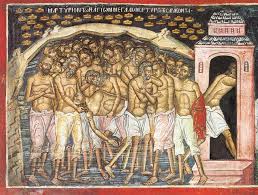 Together let us honor that holy company united by faith, those noble warriors of the Master of all; they were divinely enlisted for Christ and passed through fire and water. The they entered into refreshment and pray for those who cry: Glory Him who has strengthened you; glory to Him who has crowned you; glory to Him who has made you wonderful, O holy Forty Martyrs. (Apolytikion)
Together let us honor that holy company united by faith, those noble warriors of the Master of all; they were divinely enlisted for Christ and passed through fire and water. The they entered into refreshment and pray for those who cry: Glory Him who has strengthened you; glory to Him who has crowned you; glory to Him who has made you wonderful, O holy Forty Martyrs. (Apolytikion)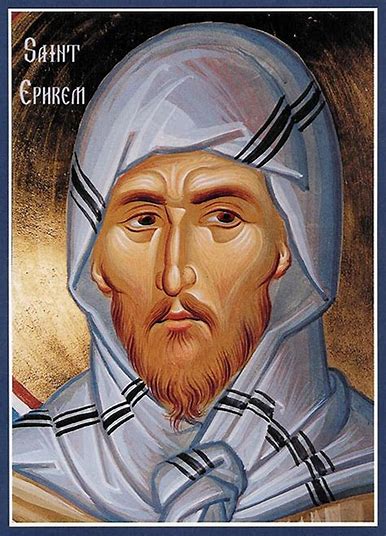 Today, the Church liturgically recalls the life and work of Our Holy Father Ephrem the Syrian.
Today, the Church liturgically recalls the life and work of Our Holy Father Ephrem the Syrian.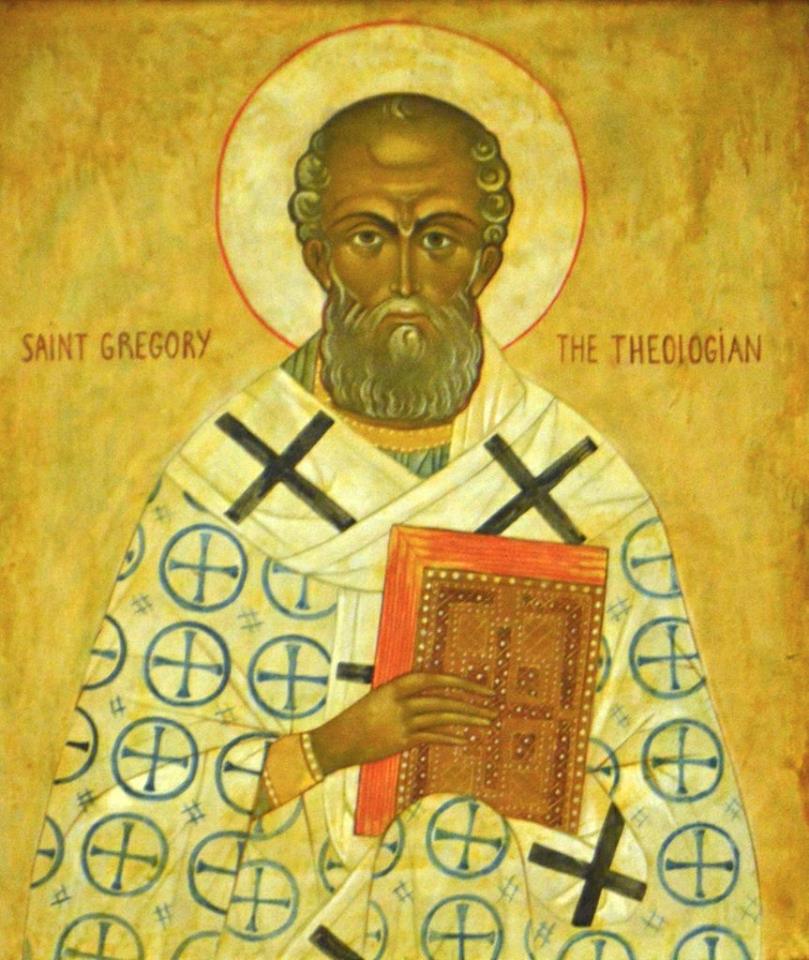 Today the Church liturgically commemorates one the greats: St Gregory the Theologian, Archbishop of Constantinople. The Troparion for this feast reads:
Today the Church liturgically commemorates one the greats: St Gregory the Theologian, Archbishop of Constantinople. The Troparion for this feast reads: